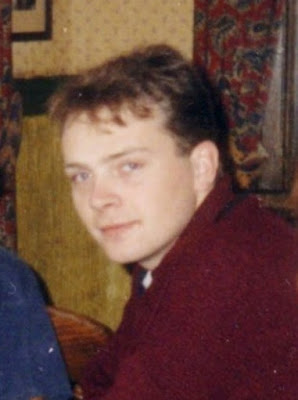"Hatred as an element of the struggle; a relentless hatred of the enemy, impelling us over and beyond the natural limitations that man is heir to and transforming him into an effective, violent, selective and cold killing machine. Our soldiers must be thus; a people without hatred cannot vanquish a brutal enemy." - Ernesto "Che" Guevara, Message to the Tricontinental (1967)
 |
| Fidel Castro and Augusto Pinochet meet in Chile |
Ernesto "Che" Guevara's drive to overthrow existing governments in Latin America, combined with Fidel Castro's support for terrorist groups in Chile led to unease in Chile that resulted in Augusto Pinochet's successful coup against Salvador Allende on September 11, 1973.
Che Guevara was an admirer of Mao Zedong and his formulation of guerilla warfare is adapted from the Chinese leader. Che published influential manuals Guerrilla Warfare (1961) and Guerrilla Warfare: A Method (1963), which were based on his own experiences and partly chairman Mao Zedong's writings. Guevara stated that revolution in Latin America must come through insurgent forces developed in rural areas with peasant support. His international legacy of glorifying violence through an erroneous analysis of guerilla warfare, based on his experiences with the Batista army, which was too incompetent and corrupt to fight, and applying Zedong’s writings on the subject led to bloodbaths in Argentina, Chile, El Salvador, Nicaragua, Chiapas, Congo, Angola and decades of military dictatorship and political violence.
 |
| Ernesto "Che" Guevara meets Mao Zedong in China in 1960 |
Guevara in his 1967 Message to the Tricontinental, an international gathering of guerilla and terrorist groups from Asia, Europe, and Latin America, described the kind of struggle to be expanded and carried out in Latin America to overthrow the existing governments:
"We must carry the war into every corner the enemy happens to carry it: to his home, to his centers of entertainment; a total war. It is necessary to prevent him from having a moment of peace, a quiet moment outside his barracks or even inside; we must attack him wherever he may be; make him feel like a cornered beast wherever he may move."
Guevara’s call to total war led to the rise of new military juntas in countries that had not known them before in their history: Brazil, Ecuador, Panama, and Uruguay all had their first military juntas after the Castro regime began to export guerillas and Guevara's ideology. Other countries such as Chile, who had known a military junta between 1924 and 1931, in reaction to communist threats in 1973 embraced Augusto Pinochet who remained in power for seventeen years thanks to the continued terrorism carried out by agents and groups funded and backed by Fidel Castro.
With the exception of Nicaragua Che Guevara’s prescription for revolution in Latin America led to a generation of right wing military dictatorships and harsh repression. In Nicaragua it led to a Marxist dictatorship, civil war and harsh repression.
In Ireland the Irish Republican Army holds up Guevara as a
hero and exemplar. No one should be surprised when some of his admirers
in Ireland planted a 600 pound bomb to advance their revolutionary agenda. They were just following the Argentine revolutionary's instructions.
































